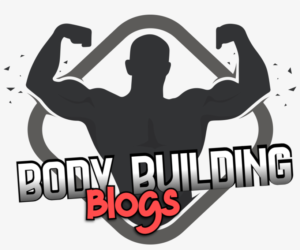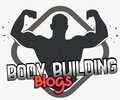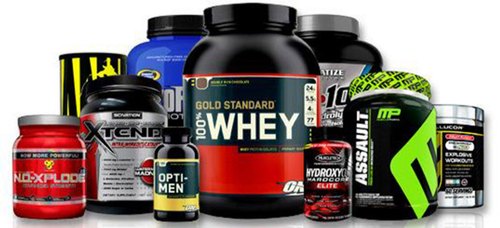Bodybuilding supplements are meant to help you perform better, recover faster, and gain more muscle, but they don’t work like magic pills. They work best when you eat a healthy diet and work out regularly. Sadly, the supplement market is full of false information, overblown claims, and items that promise speedy results but don’t deliver or, even worse, hurt you. This blog’s goal is to cut through the noise and give straightforward, science-based advice on safe and effective bodybuilding supplements for people of all levels, from beginners to experienced lifters.
Do you really need bodybuilding supplements?
You can’t get fit by taking supplements instead of working out hard or eating well. To be successful at bodybuilding, you need to train regularly, eat enough protein, and follow a diet that gives you the right number of calories. Supplements are things that can help you get the nutrients you need, speed up your recovery, and improve your performance when your diet and training are already on track.
Supplements can be quite beneficial in situations like these:
- Recovery: Lessening muscular discomfort and speeding up the healing process after tough workouts.
- Muscle Growth: Helping to make proteins and get energy.
- Convenience: Giving you nutrients when entire foods aren’t possible (like smoothies after an exercise).
Supplements can help you get ahead if your diet is missing some nutrients or you’re pushing your body to its limits, but they aren’t necessary for success.
What makes a supplement “no-harm”
For a supplement to be “no-harm,” it must meet the following requirements:
- Backed by Science: Backed by research that have been evaluated by other scientists and shown to work.
- Long-Term Safe Use: There are no major health hazards with regular use.
- Few or no side effects: Most people can handle it well.
- Organizations that are well-known have given their approval: Certified by groups like NSF International or Informed Sport, or following FDA rules.
These factors make sure that the supplements you choose are both safe and helpful for your bodybuilding journey.
The Best No-Harm Bodybuilding Supplements
a. Whey Protein
What is it? A protein that comes from milk and breaks down quickly. It has a lot of important amino acids.
How It Works: Provides high-quality protein for recovery after exercise and protein synthesis, which helps muscles repair and grow.
How to Use It Safely: Try to have 20 to 30 grams per serving, preferably after a workout or as a meal substitute. Pick items with few additives and those have been tested by a third party (like NSF Certified). Don’t eat too much to avoid problems with your stomach.
b. Creatine Monohydrate
What It Is: A substance that happens naturally in muscle cells and is made from amino acids.
How It Helps: Increases muscle volume, strength, and power by making more ATP during high-intensity exercise.
How to Use It Safely: Take 3 to 5 grams every day, ideally after a workout with a source of carbohydrates to help absorption. You don’t need to load it up; just use it often. Drink enough water to avoid cramps.
c. Amino Acids with Branches (BCAAs)
What It Is: Three amino acids (leucine, isoleucine, and valine) are very important for repairing muscles.
How It Helps: May help with healing and lessen muscle discomfort, especially after hard workouts or when protein intake is low.
How to Use It Safely: Take 5 to 10 grams before or after your workout. Choose a ratio of 2:1:1 (leucine:isoleucine:valine). Keep in mind that whey and other complete protein sources may lower the need for BCAAs.
d. Omega-3 Fatty Acids
What it is: Fish oil or algal supplements that contain EPA and DHA, which are important lipids.
How It Helps: It lowers inflammation, helps keep joints healthy, and may help muscles recover faster by making more proteins.
How to Use It Safely: Take 1 to 3 grams with meals every day. To avoid pollutants like mercury, pick fish oil that is high-quality and filtered. Options made from algae are great for vegetarians.
e. Multivitamins
What it is: A mix of important vitamins and minerals.
How It Helps: It fills up the gaps in your diet, which helps your overall health, energy levels, and immune system.
How to Use It Safely: Take one serving with food every day. To make sure the quality is good and to prevent taking too much of any nutrient, pick a brand that has been tested by a third party.
f. Vitamin D
What It Is: A vitamin that dissolves in fat and is important for hormone balance and bone health.
How It Helps: Helps with testosterone levels, muscle function, and recovery, especially for people who don’t get a lot of sun.
How to Use It Safely: Take 2,000 to 4,000 IU every day with a meal that has fat in it. To avoid taking too many supplements, have your blood levels checked.
g. ZMA (Zinc and Magnesium)
What It Is: A mix of magnesium, zinc, and sometimes vitamin B6.
How It Works: Helps muscles heal, sleep better, and make more testosterone, all of which are important for bodybuilding.
How to Use It Safely: Before bed, take 30 mg of zinc, 450 mg of magnesium, and 10–11 mg of B6. Don’t take it with foods high in calcium because they can stop it from being absorbed.
h. L-Glutamine
What it is: An amino acid that is common in muscular tissue.
How It Helps: It may help muscles heal and ease discomfort, especially when you’re training a lot.
How to Use It Safely: After working out or before bed, take 5 to 10 grams. It’s usually safe, but not as important if your diet is high in protein.
Supplements to Stay Away From or Use With Care
Some supplements are risky because they have negative effects, lack proof, or have chemicals that are not clear:
- Fat burners often include a lot of stimulants in them, like coffee, which can make your heart race, make you anxious, or make you dependent.
- Anabolic steroids are illegal without a prescription and can cause major health problems like liver damage and hormone abnormalities.
- Proprietary Blends: It’s hard to tell how much of each ingredient is in them, which makes it hard to judge their safety or effectiveness.
- Too Much Hype for Pre-Workouts: Formulas with a lot of stimulants can make you jittery, crash, or put stress on your heart. If you require caffeine, stick to simple sources.
Before taking fashionable supplements, always look up the components and talk to a doctor.
Are supplements made from plants better?
Plant-Based vs. Synthetic: Supplements made from plants, including vegan protein powders and algae-based omega-3s, may be easier on the stomach and contain less ingredients. But if they are made correctly, synthetic counterparts are typically cheaper and just as effective.
Natural has these benefits: Less side effects, more environmentally friendly sourcing, and better for people with sensitive stomachs.
When Natural Isn’t Always Better: Some natural supplements, including botanical extracts, haven’t been tested as thoroughly or dosed consistently, so synthetic options that have been shown to work are more reliable.
Pick based on what you like to eat, but put quality and honesty ahead of marketing claims.
How to Pick Safe Bodybuilding Supplements
- Check for Third-Party Testing: NSF, Informed Sport, and USP are examples of certifications that guarantee safety and purity.
- Read the labels carefully to see what the active components are, how much of them there are, and if they can cause an allergic reaction.
- Stay away from mega-doses and hidden ingredients: High doses can put stress on organs, and proprietary blends may hide hazardous compounds.
- Talk to a Professional: A doctor or nutritionist can provide you advice that is specific to your health needs and goals.
Questions that come up a lot
Is it okay for teens to take supplements?
Most personally acceptable for teens in little amounts, like whey protein and multivitamins. However, teens should stay away from stimulants and hormone-related supplements like ZMA. Talk to a doctor first.
How long will it take to see results?
Results vary, but creatine may help in 1–2 weeks, while protein and recovery supplements may take 4–8 weeks of regular use.
Is it okay to take all of these supplements at once?
Yes, but don’t take more than one type of nutrient at a time (such multivitamins and ZMA). Talk to a dietitian and spread out your doses throughout the day.
Are supplements dangerous for your liver and kidneys?
Taking too many or low-quality vitamins might put a lot of stress on your organs. To lower your risk, stick to the suggested doses and pick well-known brands.
The end
When utilized correctly, bodybuilding supplements like whey protein, creatine, BCAAs, omega-3s, multivitamins, vitamin D, ZMA, and L-glutamine can help you reach your fitness goals. But they aren’t a shortcut; focus on eating a lot of nutrients, training correctly, and being consistent. Don’t take dangerous supplements like steroids or fat burners that haven’t been evaluated. Always buy items that have clear labels and third-party certifications. Focus on long-term improvements, and talk to experts about how to make your supplement stack work best for you.


